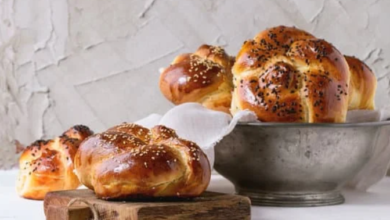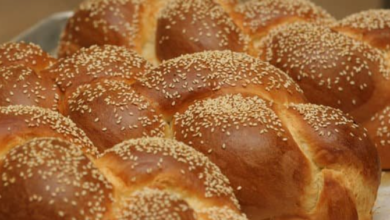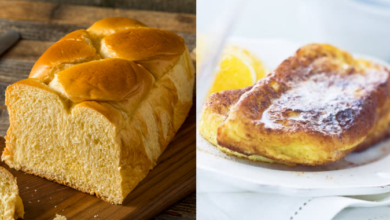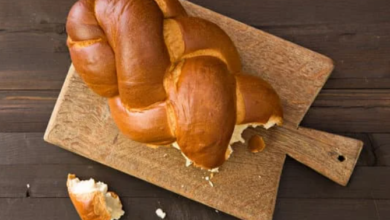Is Challah Bread Low In Fiber?
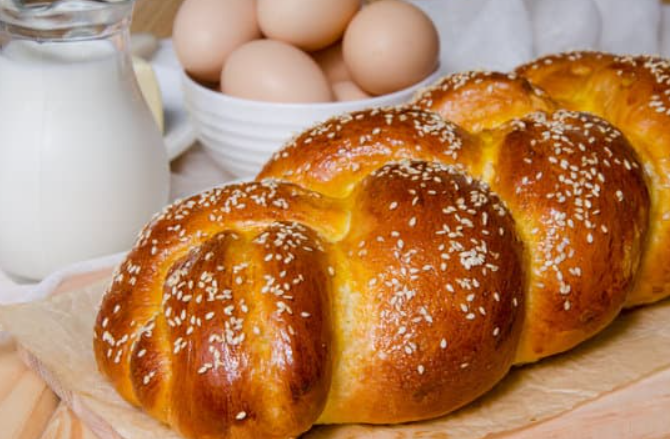
What To Know
- While white challah bread may be low in fiber, it can still be enjoyed as part of a balanced diet.
- While white challah bread is low in fiber, whole-wheat and fortified varieties offer a more substantial source of this essential nutrient.
- Is it okay to eat white challah bread if I am trying to increase my fiber intake.
Challah bread, a popular Jewish delicacy, has long been a staple in many households. However, its nutritional value has sparked curiosity among health-conscious individuals, particularly regarding its fiber content. This blog post delves into the intricacies of challah bread and its fiber composition, providing comprehensive answers to the question: “Is challah bread low fiber?”
Understanding Fiber in Bread
Fiber, a type of carbohydrate that the human body cannot digest, plays a crucial role in maintaining digestive health and overall well-being. It promotes satiety, regulates blood sugar levels, and supports a healthy gut microbiome.
Challah Bread: Composition and Fiber Content
Challah bread typically consists of flour, water, yeast, sugar, salt, and eggs. The type of flour used significantly impacts the fiber content. Whole-wheat flour, containing the entire wheat kernel, is rich in fiber, while refined white flour has a lower fiber concentration.
White Challah Bread: Low in Fiber
Traditional white challah bread, made with refined white flour, is generally low in fiber. A typical 100-gram serving provides approximately 2-3 grams of fiber, falling short of the recommended daily intake of 25-30 grams.
Whole-Wheat Challah Bread: Higher in Fiber
Whole-wheat challah bread, crafted with whole-wheat flour, offers a significantly higher fiber content. A 100-gram serving can provide up to 6-8 grams of fiber, making it a more nutritious choice.
Fiber Enrichment: Fortified Challah Bread
Some manufacturers fortify their challah bread with additional fiber, such as wheat bran or oat fiber. This process enhances the fiber content, providing a more substantial source of this essential nutrient.
Dietary Considerations: Incorporating Challah Bread into a Balanced Diet
While white challah bread may be low in fiber, it can still be enjoyed as part of a balanced diet. Pairing it with high-fiber foods, such as fruits, vegetables, and whole grains, ensures adequate fiber intake.
Health Benefits of Fiber in Challah Bread
The fiber in challah bread, particularly in whole-wheat varieties, offers several health benefits:
- Improved Digestion: Fiber promotes regular bowel movements, preventing constipation.
- Blood Sugar Regulation: It slows down the absorption of sugar into the bloodstream, helping to stabilize blood sugar levels.
- Reduced Cholesterol Levels: Soluble fiber can bind to cholesterol and remove it from the body, potentially lowering cholesterol levels.
- Weight Management: Fiber creates a feeling of fullness, reducing hunger and promoting weight management.
Summary: Challah Bread and Fiber – A Balanced Approach
In conclusion, the fiber content of challah bread varies depending on the type of flour used. While white challah bread is low in fiber, whole-wheat and fortified varieties offer a more substantial source of this essential nutrient. By incorporating challah bread into a balanced diet that includes high-fiber foods, individuals can enjoy this beloved delicacy while reaping the benefits of adequate fiber intake.
Frequently Asked Questions
1. Is all challah bread low in fiber?
No, whole-wheat and fortified challah bread varieties offer higher fiber content.
2. How much fiber should I aim for daily?
The recommended daily intake of fiber is 25-30 grams.
3. What are some high-fiber foods that I can pair with challah bread?
Fruits, vegetables, whole grains, legumes, and nuts are excellent sources of fiber.
4. Is it okay to eat white challah bread if I am trying to increase my fiber intake?
Yes, it can be enjoyed as part of a balanced diet. Pair it with high-fiber foods to meet your daily fiber needs.
5. Can fortified challah bread help me lose weight?
Fiber can promote satiety and reduce hunger, potentially supporting weight management.
